Fritextsökning
Artiklar per år
Innehållstyper
-

ALS – When the body has given up, but the brain persists
The nerve disease ALS gradually deprives the patient of control over the muscles and, eventually, also of speech. The eyes continue to function, though, and with the help of, among other things, a Swedish-developed invention, communication with the outside world can continue. “It’s their window to the world,” says ALS researcher Caroline Ingre.
-

New study: Post-Covid symptoms are common even after mild Covid-19
According to researchers at the University of Gothenburg, loss of smell and taste, shortness of breath and chest symptoms are the most common complaints after a mild Covid infection.
-
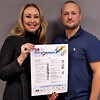
Dags för ”ett av våra mest efterfrågade möten”
-

He is zooming in on topical preparations
According to Zelmic CEO David Sagna, topical products in drug development is a growing market, and to keep pace with the development, the company is awaiting approval for its new GMP facility.
-
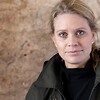
Flyttar gränser för gen- och cellterapi
”Vi är bra på att vara innovativa och flytta gränser inom gen- och cellterapi och den här studien symboliserar det på ett tydligt sätt”, säger Evelina Vågesjö, vd för Ilya Pharma, om den kliniska studie som företaget startar nästa år.
-
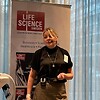
Swedish breakthrough in Alzheimer’s: “We can finally present great data”
Treatments for Alzheimer’s disease are currently among the hottest topics in drug development. Two Swedish research companies with high ambitions and successes in the field participated in Bioscience 2022 conference at Life City in Hagastaden, Stockholm.
-

"Are we doing business the wrong way around in the Life Science Sector?"
For the past 50 years we have created solutions for problems that we thought would solve the problems. Pharmaceuticals have created big block buster drugs which were great for that time but now we realise that these drugs were in fact only tested in white men and certainly not for patients who are older who are taking a number of medications.
-
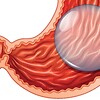
Alert from the Swedish Medicines Agency: Many complications with gastric balloons
According to the Swedish Medicines Agency, an increasing number of serious complications are being reported in procedures with gastric balloons as a method for weight loss. The authority fears significant shortcomings in the information to patients both before and after the procedure.
-

The TFS family is growing
TFS HealthScience is a European based CRO company with broad expertise and experiences in the biotech and pharmaceutical sector. The company is growing and the TFS family welcomes new members.
-
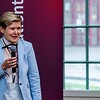
FOKUS Patient turns international
FOKUS Patient is arranging conferences over 3 days in October, and this year, the focus will be on international collaborations.
-
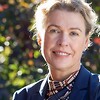
Anna Törner: Kalashnikovs in a new guise
Thanks to resisting European regulatory authorities, Europe has been spared the opioid epidemic. In the 1960s, the situation was the opposite as the American pharmaceutical authority, the Food and Drug Administration (FDA), refused to approve thalidomide (Neurosedyn), writes Anna Törner in a column.
-
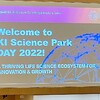
Lucy Robertshaw: Did you know Stockholm wants to be in top 5 in the world for Life Sciences?
Karolinska Institutet Solna Campus has certainly become the next “Kendall Square”, writes Lucy Robertshaw in a column.
-

BioVentureHub CEO: “Companies with a high degree of interaction achieve greater success”
For the first time since its inception, AstraZeneca’s BioVentureHub can now recruit new companies, as some of its tenants have grown significantly and are leaving the hub. This is the message from the biohub’s CEO Magnus Björsne in an interview, in which he also highlights a study that points out that companies with a high degree of interaction with other companies achieve greater success.
-

Björn Arvidsson: “We need robust and recognized ecosystems for continued competitiveness”
“We have idea carriers and excellent innovation opportunities, and now we must invest in creating ecosystems that provide them with even better growth opportunities,” Björn Arvidsson writes in a column.
-
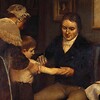
The first vaccine derived from cowpox
The British rural doctor could not forget the words of the peasant girl. Could that really be true? A couple of decades later, on 14 May 1796, he performed the world’s first smallpox vaccination, and a medical breakthrough had occurred.
-

Anna Törner: To kill your darlings
Hopes were high when Anna Törner and her colleague started a study on a dietary supplement that seemed unbelievably good. “Enthusiastically, we dreamed of exciting results and perhaps a publication in a high-impact journal,” she writes in a column.
-
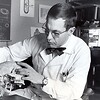
When carelessness, forgetfulness and coincidence become the researcher’s best friend
Forgetfulness, coincidence and a stroke of luck hardly make up a fruitful method of serious research. Or do they? Actually, a number of important medical advances have come about thanks to completely random incidents and the open-mindedness of scientists who were ready to think outside the box.
-

Lucy Robertshaw: Are we in the perfect storm?
“Is there a perfect storm on the horizon again as elective surgeries were cancelled due to patients being admitted with Covid-19? We now have a long backlog of people who are presenting with chronic diseases that need to access healthcare again”, writes Lucy Robertshaw in a column.
-

Björn Ursing: Physicians new role in AI driven healthcare
”AI could be the key we need for tomorrow’s healthcare, but it is not a stand-alone tool”, writes Björn Ursing in a column about how the role for physicians changes in the era of AI.
-
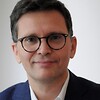
Samuel Lagercrantz: Immunotherapy against cancer is still in its early stages
For more than 100 years, researchers have tried to target the body’s own immune system to fight cancer cells. They have occasionally been laughed at and ridiculed by the medical establishment. However, from our perspective today, we can sum it up with the saying: He who laughs last laughs best, writes Samuel Lagercrantz in an editorial.
-
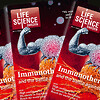
Life Science Sweden´s international issue is on its way
A new issue of Life Science Sweden is on its way to print, packed with news, interviews and reports.
-

Study: An objective diagnosis of constant tinnitus may be possible
A new method that measures brain activity during sound stimulation can make it possible to objectively diagnose and identify people who suffer from constant tinnitus, which was demonstrated in a study made by researchers at the Karolinska Institute.
-

“Together Stockholm-Uppsala and Medicon Valley can make Scandinavia a leading life science region”
“Denmark, Sweden, Norway and Finland all have national life science strategies, but the Swedish strategy is the only one explicitly emphasizing the Nordic dimension. But what if the leading life science nations, Denmark and Sweden, joined forces, took the lead and pioneered Nordic life science collaboration? Wouldn´t we then be able to "bake a bigger cake?", writes Anette Steenberg and Ulf G. Andersson in a debate article.